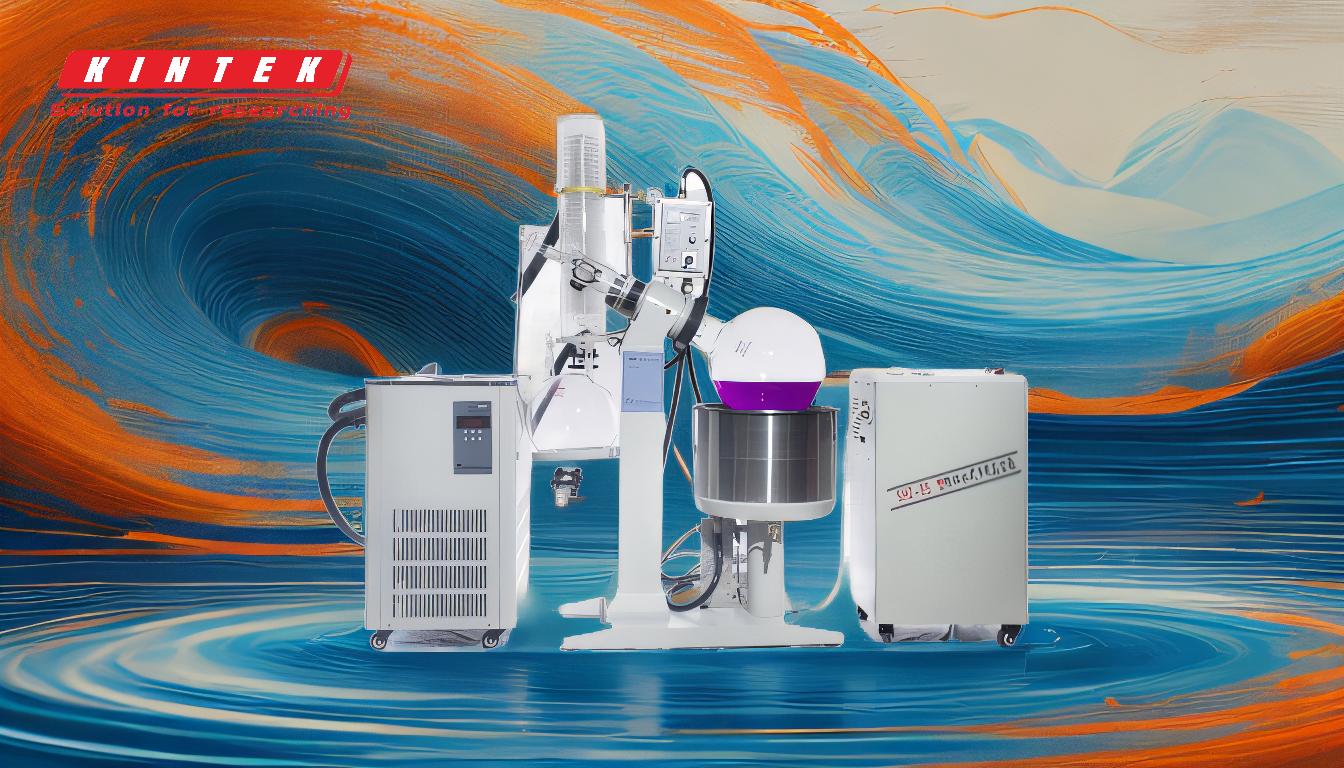A rotary evaporator, commonly referred to as a rotovap, is a specialized laboratory instrument designed for the efficient and gentle removal of solvents from samples. It is widely used in chemical, pharmaceutical, and research laboratories due to its ability to quickly evaporate solvents without exposing the sample to excessive heat. The rotovap achieves this by lowering the pressure to reduce the solvent's boiling point, rotating the sample to increase the surface area for evaporation, and applying controlled heating. This process minimizes the risk of thermal decomposition, making it ideal for isolating compounds, creating distillates, and preparing samples for further analysis.
Key Points Explained:

-
Purpose of a Rotary Evaporator:
- The primary purpose of a rotovap is to remove solvents from samples efficiently and gently. This is particularly important in chemical and pharmaceutical laboratories where solvents need to be separated from reaction mixtures without damaging heat-sensitive compounds.
-
How It Works:
- Pressure Reduction: The rotovap lowers the pressure inside the system, which reduces the boiling point of the solvent. This allows the solvent to evaporate at lower temperatures, minimizing the risk of thermal decomposition.
- Rotation: The sample flask is rotated to increase the surface area of the liquid, promoting faster and more uniform evaporation.
- Controlled Heating: A water bath or heating element is used to gently heat the sample, further aiding the evaporation process.
-
Applications:
- Solvent Removal: The rotovap is commonly used to remove low-boiling organic solvents from mixtures, making it essential in organic synthesis and purification processes.
- Compound Isolation: It is used to isolate desired compounds from complex mixtures, such as in the extraction of natural products or the purification of synthetic chemicals.
- Distillate and Extract Preparation: In molecular cooking and pharmaceutical research, the rotovap is used to prepare distillates and extracts by concentrating solutions.
-
Advantages:
- Efficiency: The rotovap is one of the fastest and most efficient methods for solvent removal, especially for low-boiling solvents.
- Gentle Processing: By operating at reduced pressure and controlled temperatures, the rotovap minimizes the risk of degrading heat-sensitive compounds.
- Scalability: It can handle a wide range of sample volumes, from small-scale laboratory samples to larger volumes up to 3 liters.
-
Common Uses in Laboratories:
- Organic Chemistry: Widely used in organic laboratories for solvent removal during synthesis and purification.
- Pharmaceutical Research: Essential for isolating and purifying active pharmaceutical ingredients (APIs) and intermediates.
- Natural Product Extraction: Used in the extraction of essential oils, flavors, and other natural compounds.
- Molecular Cooking: Employed in the preparation of concentrated extracts and distillates for culinary applications.
-
Key Features:
- Vacuum System: The ability to reduce pressure is crucial for lowering the boiling point of the solvent.
- Rotating Flask: The rotating motion increases the surface area of the liquid, enhancing evaporation rates.
- Heating Bath: Provides controlled heating to facilitate the evaporation process without overheating the sample.
- Condenser: Captures and condenses the evaporated solvent, allowing for its collection and reuse.
In summary, the rotovap is an indispensable tool in modern laboratories, offering a combination of efficiency, precision, and gentle processing that is essential for a wide range of applications in chemistry, pharmaceuticals, and beyond.
Summary Table:
| Aspect | Details |
|---|---|
| Purpose | Efficient and gentle removal of solvents from samples. |
| How It Works | - Pressure reduction lowers boiling point. |
| - Rotation increases surface area for faster evaporation. | |
| - Controlled heating prevents thermal decomposition. | |
| Applications | - Solvent removal, compound isolation, distillate preparation. |
| Advantages | - Efficient, gentle processing, scalable for various sample volumes. |
| Common Uses | - Organic chemistry, pharmaceutical research, natural product extraction. |
| Key Features | - Vacuum system, rotating flask, heating bath, condenser. |
Ready to enhance your lab's efficiency? Contact us today to learn more about rotary evaporators!











